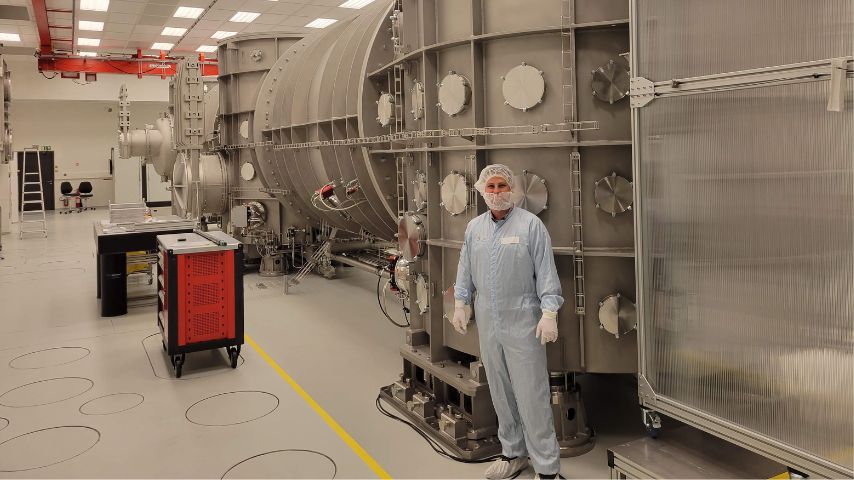The Brookings Institution Hosts Conversation on Artificial Intelligence and Policymaking
The Brookings Institution Hosts Conversation on Artificial Intelligence and Policymaking
The Brookings Institution recently hosted a conversation on artificial intelligence (AI) and policymaking featuring two Brookings staff: John R. Allen, President, and Darrell West, vice president and director of Governance Studies. Allen and West are the authors of Turning Point: Policymaking in the Era of Artificial Intelligence, which was published in July 2020. The conversation focused on how to harness the transformative capabilities of AI while reducing its potential disadvantages.
West first discussed the features—outlined in Turning Point—that he and Allen use to distinguish AI from other technologies. To be classified as AI, the technology must have intentionality, intelligence, and adaptability. AI contains automated software that can analyze data, text, and images, and then make intelligent decisions based on that information. Most importantly, the AI must be able to learn; as data changes, the system needs to adapt to make decisions based on the new information.
The ability of AI to learn and adapt is one of the characteristics that makes its opportunities for utilization almost limitless. Allen cited medical research, education, wealth management, and ecommerce as examples where the application of AI has already resulted in more efficient processes. Because of the breadth of AI’s potential implementation, Allen argued, it is even more crucial to develop regulations, policies, and laws governing its use. He noted that, in the past, technologies have often led an environment ahead of the formulation of policy by as much as 7-10 years; with the rate at which technology is progressing now, this is far too long to wait for a federal AI policy framework.
Allen noted that the policymaking community recognizes the urgency of comprehensive AI regulation. The acronym ELSi is often used as a guide when discussing specific AI technologies; policymakers ask themselves about the Ethical, Legal, and Societal implications of the technology and build policy from there. Despite this, says West, the U.S. government is not prepared to singlehandedly regulate AI right now. Lack of proper staffing and expertise are two of the primary obstacles; experts in the AI industry can often make up to a million dollars annually in the private sector, making it challenging for the federal government to entice qualified individuals into the public sector.
West cited the National Institute of Standards and Technology (NIST)—a frequent collaborator of ASME—as one of the federal agencies currently tasked with developing AI standards. In partnership with the U.S. Departments of Defense, Energy, and Commerce, NIST oversees the Manufacturing USA program, a national network of linked manufacturing institutes designed to accelerate U.S. technological innovation. West argues that these public-private partnerships are crucial to ensure that policymakers develop AI regulations that safeguard human rights without stifling innovation. With the proper regulations and “guardrails,” says Allen, these technologies can be wielded for the benefit of all humanity.
You can access the entire Brookings webinar on policymaking and artificial intelligence here.
ASME recognizes the importance of a multifaceted technology strategy. Register now for our Digital Twin Summit being held virtually May 12-13.
West first discussed the features—outlined in Turning Point—that he and Allen use to distinguish AI from other technologies. To be classified as AI, the technology must have intentionality, intelligence, and adaptability. AI contains automated software that can analyze data, text, and images, and then make intelligent decisions based on that information. Most importantly, the AI must be able to learn; as data changes, the system needs to adapt to make decisions based on the new information.
The ability of AI to learn and adapt is one of the characteristics that makes its opportunities for utilization almost limitless. Allen cited medical research, education, wealth management, and ecommerce as examples where the application of AI has already resulted in more efficient processes. Because of the breadth of AI’s potential implementation, Allen argued, it is even more crucial to develop regulations, policies, and laws governing its use. He noted that, in the past, technologies have often led an environment ahead of the formulation of policy by as much as 7-10 years; with the rate at which technology is progressing now, this is far too long to wait for a federal AI policy framework.
Allen noted that the policymaking community recognizes the urgency of comprehensive AI regulation. The acronym ELSi is often used as a guide when discussing specific AI technologies; policymakers ask themselves about the Ethical, Legal, and Societal implications of the technology and build policy from there. Despite this, says West, the U.S. government is not prepared to singlehandedly regulate AI right now. Lack of proper staffing and expertise are two of the primary obstacles; experts in the AI industry can often make up to a million dollars annually in the private sector, making it challenging for the federal government to entice qualified individuals into the public sector.
West cited the National Institute of Standards and Technology (NIST)—a frequent collaborator of ASME—as one of the federal agencies currently tasked with developing AI standards. In partnership with the U.S. Departments of Defense, Energy, and Commerce, NIST oversees the Manufacturing USA program, a national network of linked manufacturing institutes designed to accelerate U.S. technological innovation. West argues that these public-private partnerships are crucial to ensure that policymakers develop AI regulations that safeguard human rights without stifling innovation. With the proper regulations and “guardrails,” says Allen, these technologies can be wielded for the benefit of all humanity.
You can access the entire Brookings webinar on policymaking and artificial intelligence here.
ASME recognizes the importance of a multifaceted technology strategy. Register now for our Digital Twin Summit being held virtually May 12-13.



